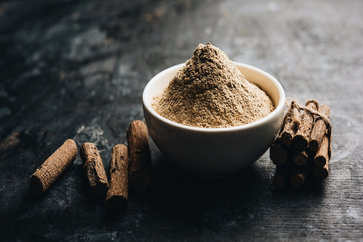What is the Ayurvedic Diet? What Diet is Right for You?
The Ayurvedic diet, a most important part of ancient Indian medicine, is a holistic approach to nutrition that centers on achieving balance and harmony within the body. Rooted in the concept of “doshas,” or unique bodily constitutions, this dietary philosophy suggests specific foods and practices to optimize health and well-being.
By prioritizing whole, fresh, and seasonal foods, the Ayurvedic diet aligns with contemporary nutritional wisdom. This emphasis on unprocessed ingredients can support various health goals, including weight management and chronic disease prevention.
Furthermore, Ayurveda recognizes the interconnectedness of the body and mind, suggesting that dietary choices can influence emotional and mental equilibrium.
The Role of Digestion in Ayurveda
Ayurveda places immense importance on digestion, considering it the foundation of overall health and well-being.
Agni, often referred to as the “digestive fire,” is the metabolic energy responsible for transforming food into nourishment and energy for the body.
When Agni is strong, it efficiently breaks down food, allowing for proper absorption of nutrients and elimination of waste. This optimal state leads to abundant ojas, the vital life force that supports immunity, vitality, and mental clarity.
Conversely, a weakened agni results in the accumulation of ama, undigested food particles that create toxins within the body.
Ama is believed to be the root cause of various health issues, ranging from digestive discomfort to chronic diseases.
The Key to Ayurvedic Eating: Your Body Type
Ayurveda, the ancient Indian system of medicine, posits that individuals possess unique bodily constitutions known as doshas.
These doshas—Kapha, Pitta, and Vata—are combinations of the five fundamental elements: space, air, fire, water, and earth.
Your dominant dosha influences your physical, mental, and emotional characteristics, as well as your dietary needs.
By identifying your primary dosha, you can tailor your diet to balance your energies and promote optimal health.
- Kapha: Predominantly composed of water and earth, Kapha individuals often have a sturdy build and a calm demeanor. They may experience challenges with weight management, allergies, and respiratory issues.
- Pitta: A blend of fire and water, Pitta types tend to have a medium build and a strong digestive system. They might struggle with heartburn, acid reflux, and inflammatory conditions.
- Vata: Composed of air and space, Vata individuals are typically lean and energetic but can experience imbalances such as anxiety, digestive problems, and insomnia.
Remember, everyone possesses qualities of all three doshas, but one usually predominates.
By understanding your unique combination, you can make informed food choices to support your overall well-being.
The Six Tastes: A Flavorful Path to Balance
Ayurveda places significant importance on the harmonious interplay of flavors.
The six fundamental tastes—sweet, sour, salty, pungent, bitter, and astringent—are believed to influence digestion, metabolism, and overall well-being.
Consuming all six tastes in your meals is crucial for maintaining balance within the body. By incorporating a variety of flavors, you can prevent cravings, support optimal digestion, and enhance your overall health.
- Sweet: Nourishing and grounding, sweet tastes provide energy.
- Sour: Stimulates digestion and appetite.
- Salty: Hydrating and essential for electrolyte balance.
- Pungent: Promotes digestion and circulation.
- Bitter: Detoxifying and cooling.
- Astringent: Drying and toning.
By consciously including these tastes in your diet, you can create meals that are not only delicious but also contribute to your holistic health.
Foods To Eat in the Ayurvedic Diet
Understanding the basic tastes that align with each dosha is a fantastic foundation. Let’s expand on this by exploring specific food groups and examples for each dosha.
Kapha-Balancing Foods
- Focus on: Light, easily digestible foods with warming and stimulating qualities.
Prioritize:
- Grains: Barley, quinoa, brown rice
- Legumes: Mung beans, lentils
- Vegetables: Asparagus, broccoli, cauliflower, garlic, ginger, leafy greens, onions, peppers
- Fruits: Apples, cranberries, grapefruit, pomegranate
- Proteins: Lean meats, fish, eggs
- Dairy: Reduced-fat dairy or plant-based alternatives
- Spices: Cumin, coriander, black pepper, turmeric
Pitta-Balancing Foods
- Focus on: Cooling, soothing foods with sweet, bitter, and astringent qualities.
Prioritize:
- Grains: Oats, barley, basmati rice
- Legumes: Mung beans, lentils
- Vegetables: Asparagus, broccoli, cauliflower, cucumber, leafy greens, zucchini
- Fruits: Apples, pears, coconut, sweet berries
- Proteins: Chicken, fish, tofu
- Dairy: Coconut milk, almond milk
- Spices: Coriander, cumin, fennel, cardamom
Vata-Balancing Foods
- Focus on: Warm, grounding foods with sweet, sour, and salty qualities.
Prioritize:
- Grains: Brown rice, quinoa, oats
- Legumes: Lentils, chickpeas
- Vegetables: Carrots, beets, sweet potatoes, squash, spinach
- Fruits: Apples, bananas, grapes, mangoes, pears
- Proteins: Chicken, fish, tofu
- Dairy: Ghee, full-fat yogurt
- Spices: Cinnamon, cardamom, ginger, cloves
Remember:
- Cooking methods: Steaming, grilling, and baking are generally preferred over deep-frying.
- Meal timing: Eating regular meals at consistent times supports digestion.
- Mindful eating: Pay attention to your body’s hunger and fullness cues.
Foods to Avoid in the Ayurvedic Diet
Avoiding certain foods can be just as important as incorporating beneficial ones in the Ayurvedic diet. Let’s expand on the foods to avoid for each dosha.
Kapha
- Avoid: Heavy, oily, and cold foods that can increase mucus production and sluggishness.
- Limit: Dairy products (especially full-fat), salty foods, sweets, and red meat.
Pitta
- Avoid: Spicy, sour, and fermented foods that can aggravate the digestive fire.
- Limit: Alcohol, caffeine, and hot beverages.
Vata
- Avoid: Dry, light, and cold foods that can increase dryness and imbalance.
- Limit: Raw vegetables, excessive caffeine, and processed foods.
Remember: These are general guidelines, and individual variations may occur. It’s essential to listen to your body and adjust your diet accordingly.
Ayurvedic Diet Benefits
It’s important to emphasize that while the Ayurvedic system offers a comprehensive approach to health, you don’t need to strictly adhere to all its principles to experience positive outcomes.
The Ayurvedic diet offers a holistic approach to health and well-being, focusing on balancing the body and mind. Here are some of its key benefits:
Physical Benefits
- Improved digestion: The emphasis on specific foods and spices aids digestion and reduces digestive issues.
- Weight management: Many people report weight loss or better weight management when following Ayurvedic principles.
- Enhanced immunity: The diet’s focus on whole foods and gut health can boost the immune system.
- Balanced hormones: Ayurvedic principles often address hormonal imbalances, leading to improved overall health.
- Reduced inflammation: Anti-inflammatory foods and spices are central to the Ayurvedic diet.
Mental and Emotional Benefits
- Stress reduction: The Ayurvedic lifestyle emphasizes stress management techniques, which can improve mental health.
- Improved sleep: Certain dietary recommendations and lifestyle practices promote better sleep quality.
- Increased energy: By balancing the body’s constitution, the Ayurvedic diet can lead to increased energy levels.
- Enhanced mood: The connection between gut health and mood is well-established, and the Ayurvedic diet supports a healthy gut.
Other Benefits
Personalized approach: The Ayurvedic diet is tailored to individual body types, making it more effective for many people.
- Focus on whole foods: Encourages consumption of nutrient-dense, minimally processed foods.
- Mindful eating: Promotes a conscious and mindful relationship with food.
Frequently Asked Questions (FAQs) on Ayurvedic diet
Q: What is an Ayurvedic diet?
A: An Ayurvedic diet is based on Ayurveda principles, emphasizing whole, natural foods suited to an individual’s dosha (body type) to promote balance and well-being.
Q: What are the three doshas?
A: The three doshas are:
Vata: Air and ether; governs movement; traits: energetic, creative, anxious.
Pitta: Fire and water; controls digestion; traits: ambitious, intelligent, irritable.
Kapha: Earth and water; responsible for structure; traits: calm, loyal, prone to weight gain.
Q: How do I determine my dosha?
A: Take an online quiz, consult an Ayurvedic practitioner, or reflect on your physical and emotional characteristics to identify your dominant dosha.
Q: What foods are recommended for each dosha?
A: Foods recommended for each dosha.
Vata: Warm, moist foods (cooked grains, root vegetables).
Pitta: Cooling, hydrating foods (fresh fruits, vegetables).
Kapha: Light, dry foods (fresh vegetables, legumes).
Q: What is the role of spices in an Ayurvedic diet?
A: Spices aid digestion and balance doshas. Common spices include turmeric, cumin, coriander, ginger, and fennel.
Q: How important is meal timing in Ayurveda?
A: Very important. Eat at consistent times daily, with the largest meal at midday. Avoid late-night eating.
Q: Can an Ayurvedic diet help with weight loss?
A: Yes, by promoting balanced eating, improving digestion, and reducing cravings. Regular exercise, mindful eating, and stress management are also key.
Q: Are there specific Ayurvedic guidelines for reducing belly fat?
A: Yes, focus on warm, cooked foods, spices like ginger and turmeric, and herbal teas. Avoid heavy, oily, and sweet foods. Exercise, good sleep, and stress management are important.
Ayurvedic diet is an ancient Indian eating plan focused on balancing body energies (doshas) through specific foods. It emphasizes whole, fresh ingredients for overall well-being.


























